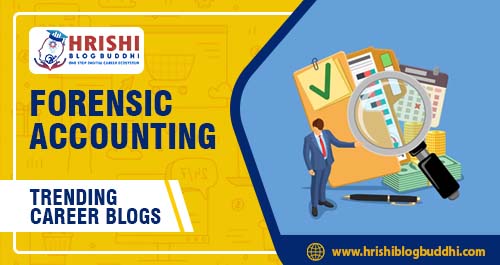Commerce is a field for students interested in financial information/transactions, economic value trade, and so on. Many students pursue Commerce courses after 12th. If you’re wondering how to become an Accounts Payable Clerk, this could be a good starting point.
Students interested in pursuing a career in business can choose from a variety of alternatives. One such career path could be learning how to become an Accounts Payable Clerk.
Candidates can enrol in the Commerce courses at the undergraduate (UG), postgraduate (PG), diploma, and doctoral levels. BCom, BBA, CA, CS, BBA LLB, BBM, BSc, and other UG Commerce courses are available to candidates. MCom, MBA, MPhil, MSc, and other PG Commerce courses are popular. In general, UG programmes in Commerce last three years, whereas PG programmes last two years. If you’re considering how to become an Accounts Payable Clerk, these courses could provide a solid foundation.
Accounting and Finance, Banking and Finance, Accounting and Taxation, Actuarial Science, Business Administration, Applied Economics, E-Commerce, Financial Accounting, Banking and Insurance, Human Resources, Entrepreneurship, Accounting and Auditing, and other specialisations are available in Commerce courses. These specialisations can be beneficial if you’re looking into how to become an Accounts Payable Clerk.
1. Accounts Payable Clerk: The accounts payable clerk will be responsible for handling the company’s bills and managing its accounts payable ledger. In other words, the work of accounts payable clerks includes compiling and maintaining accounting records. Other tasks that the Account Payable Manager has to do include tasks such as, reconciling purchase orders, paying invoices by cash, checks or electronic payment methods, sorting and matching invoices and check requests, preparing and processing accounts payable wire transfers and other payments, preparing accounts analysis, resolving invoice discrepancies, maintaining vendor files, corresponding with vendors about issues or inquiries, producing monthly financial reports, assisting in month-end closing and calculation of salaries and benefits, data encoding of batch pay sheets, and helping in the distribution of paychecks.
2. Accounts Payable Specialist: The Account Payable Specialist works to control and monitor the business expenses in detail oriented fashion. The Account payable specialist job requires them to process payments, verify invoices, and perform account reconciliations. To be a good Account payable specialist one should exhibit sound knowledge of best practices in accounting and experience in a similar role. The core task of an account specialist is to optimise the business’s expense control processes.
3. Accounts Receivable Manager: Account receivable managers are responsible for managing the accounts of a company or organization while working with vendors, suppliers, and other third parties to ensure that their clients receive the best possible service while paying the lowest possible price. They are required to make sure that all payments are made on time and in full which includes tracking down delinquent accounts or negotiating payment plans with clients who are having trouble making timely payments.
4. Billing Analyst: The billing analyst is responsible for coordinating with other departments to ensure all sales and orders are accurately billed for, setting clients up for billing, issuing invoices, and ensuring invoices correspond with balance sheet reports, reviewing medical records and billing forms to ensure that health care providers have billed their patients correctly, asked with resolving any billing issues that arise between doctors, hospitals, and insurance companies
5. Billing Manager: The core responsibilities of Billing managers are responsible for overseeing the billing process at their company or organization, ensuring that all of the bills are being generated and sent out on time, tracking payments as they come in, and making sure that everything is being recorded correctly. They also have to manage responsible relationships with vendors and other suppliers of the business for proper bill maintenance, including negotiating contracts, reviewing proposals, and ensuring that the company gets the best possible deals on services and products it needs to operate.
6. Billing Clerk: Billing clerks are responsible for entering and maintaining customer information, billing them for services rendered, and handling any related inquiries or complaints along with generating invoices, updating databases, and performing other clerical duties. The billing clerk also has to do other tasks such as updating accounting records with issued invoices, new payments, customer information, etc
7. Bookkeeper Office Manager: Office managers are responsible for overseeing the day-to-day operations of their company’s office and managing a team of administrative staff, such as secretaries and receptionists, and they may also be tasked with managing other office equipment or supplies. Office managers typically have a wide range of responsibilities but more importantly, they ensure that their company runs smoothly and efficiently. This might include anything from scheduling meetings and appointments to ordering supplies or equipment, handling payroll issues, or even resolving conflicts.
8. Debt Collector: Debt collectors are responsible for collecting payments on debts that individuals or businesses owe to creditors while working directly with the creditors including, banks, credit card companies, independent collection agencies, etc. Debt collectors commonly use phone calls, letters, and other forms of communication to try to convince debtors to pay what they owe but if they wish to they have the authority to take more aggressive actions if necessary. These aggressive measures include seizing assets, garnishing wages, or even filing lawsuits against debtors who refuse to pay their debts.
9. Full Charge Bookkeeper: Full-charge bookkeepers are professionals who oversee all aspects of the bookkeeping process and commonly work with accountants and auditors to ensure that financial records are accurate, complete, and compliant with relevant regulations. Full-charge bookkeepers may also be tasked with developing systems procedures to improve efficiency or accuracy. The Full charge Bookkeeper also has to create automated reports or databases to make it easier to track transactions or generate reports in the future.
10. Payroll Accountant: Payroll accountants are responsible for handling the payroll-related activities of their organization. Their work includes calculating and recording employee hours, wages, taxes, etc., as well as preparing checks to be sent out at the end of each pay period.
11. Payroll Specialist: Being a payroll specialist can be a challenging role due to the complexity as the role and the short turnaround time for payroll. Payroll specialists are accounting professionals who manage payroll-related activities within their organization by calculating and distributing employee paychecks, filing tax forms, handling benefits enrollment, etc. payroll accountants must have strong math skills along with an understanding of tax laws in order to do their job effectively.
12. Account Executive: An Account executive may work in many fields as accounting is required for all businesses, big and small, and is responsible for helping their companies In some fields, Account executives are also known as account handlers and sometimes also act as intermediaries between other departments within an organization to ensure the success of their clients.
13. Account Coordinator: An Account Coordinator is the primary medium of communication between a company and its customers. They should help the clients navigate the company’s services or offerings. they may even be responsible for creating and executing marketing plans designed to attract new clients as they work directly with the clients. Their core task is to make clients happy and satisfied.
14. Account Relationship Manager: The Core job responsibilities of an Account relations manager are to Maintain Good Relations with the clients of the business meanwhile actively seeking out new clients. They have to work in various settings within an organization such as Finance, retail, etc. They are responsible for building the interest of the general Masses in the current product or the brand.
15. Accounting Office Manager: Accounting Office managers are responsible for overseeing the day-to-day operations of their company’s office and managing a team of administrative staff, such as secretaries and receptionists, and they may also be tasked with managing other office equipment or supplies. Accounting Office managers typically have a wide range of responsibilities but more importantly, they ensure that their company runs smoothly and efficiently. This might include anything from scheduling meetings and appointments to ordering supplies or equipment, handling payroll issues, or even resolving conflicts.
16. Cash Manager: They oversee the income as well as the outflow of cash in a business organization hence the name. They oversee all types of cash flows from vendors, clients, etc, so the efficiency of the business is maintained. they must be able to make sound financial decisions on a daily basis, including everything from deciding which invoices should be paid immediately versus waiting until the next payday, to determining how much cash should be kept in reserve at any given time.
17. Chief Accountant: Chief Accountants are professionals who oversee all aspects of the bookkeeping process and commonly work with accountants and auditors to ensure that financial records are accurate, complete, and compliant with relevant regulations. Chief Accountants may also be tasked with developing systems procedures to improve efficiency or accuracy. The Chief Accountant also has to create automated reports or databases to make it easier to track transactions or generate reports in the future.
18. Audit Manager: An Audit manager needs leadership and management skills and is responsible for overseeing the work of auditors, ensuring that they complete their assignments in a timely manner and meet all relevant deadlines. Audit managers also commonly provide guidance and feedback to their team members on how best to conduct audits and interpret findings. This may include providing training or coaching on specific techniques or methods used by the organization.
19.Accountant: An Accountant may work in many fields as accounting is required for all businesses, big and small, and is responsible for helping their companies In some fields, Accountant s are also known as account handlers and sometimes also act as intermediaries between other departments within an organization to ensure the success of their clients.
20. Accounting Clerk: An Account Clerk may work in many fields as accounting is required for all businesses, big and small, and is responsible for helping their companies In some fields, Account Clerks are also known as account handlers and sometimes also act as intermediaries between other departments within an organization to ensure the success of their clients.
21. Junior Accountant: An Junior Accountant may work in many fields as accounting is required for all businesses, big and small, and is responsible for helping their companies In some fields, Junior Accountants s are also known as account handlers and sometimes also act as intermediaries between other departments within an organization to ensure the success of their clients.








